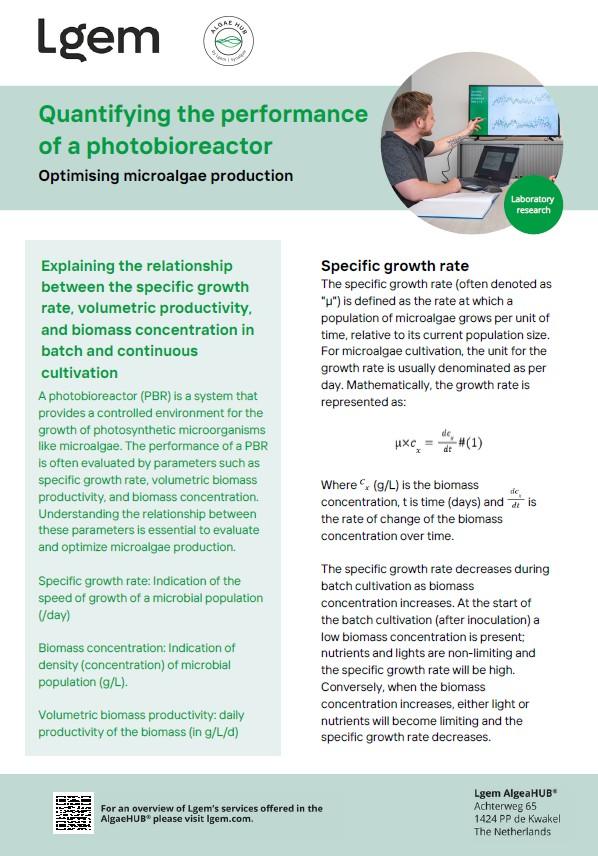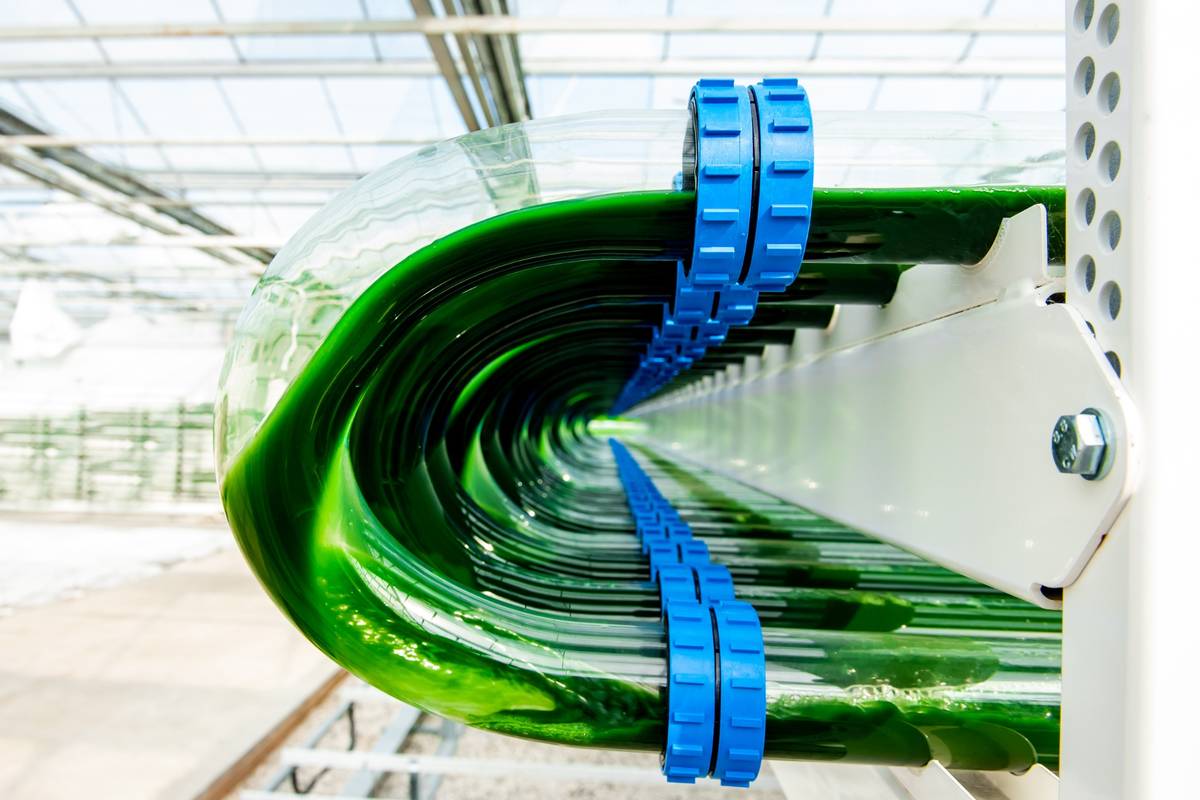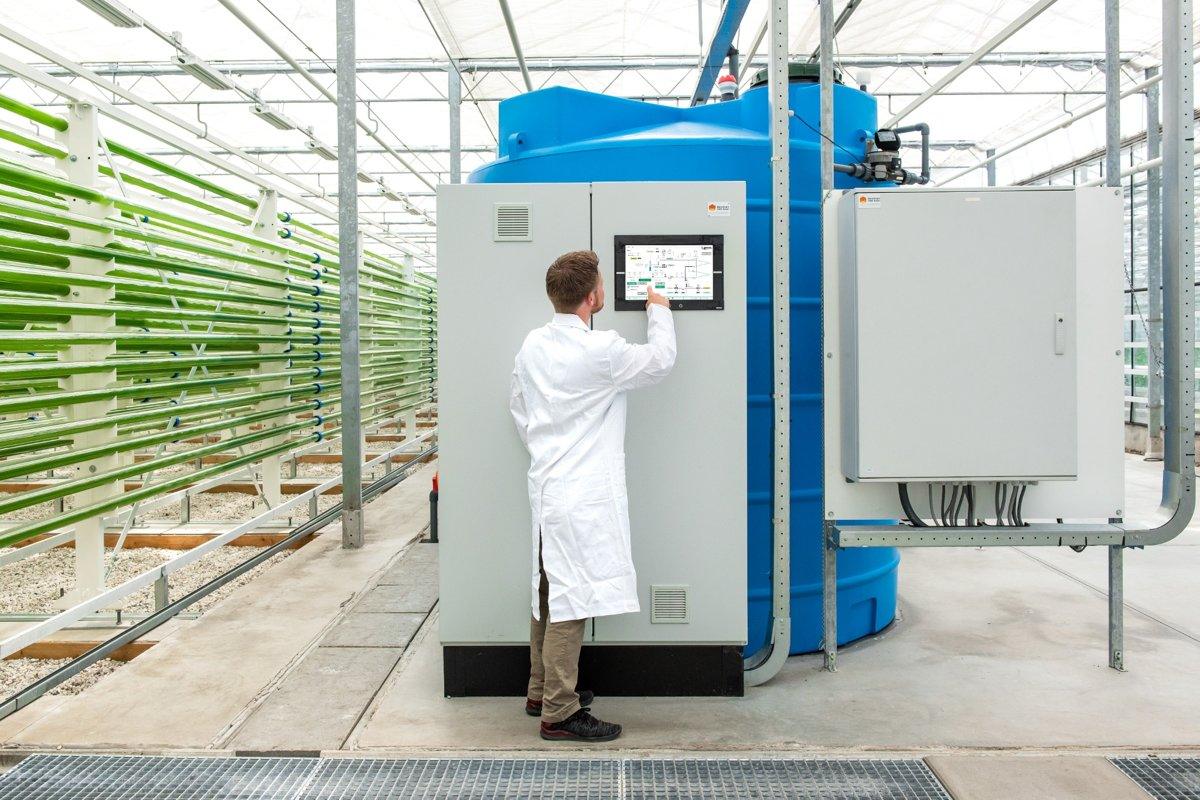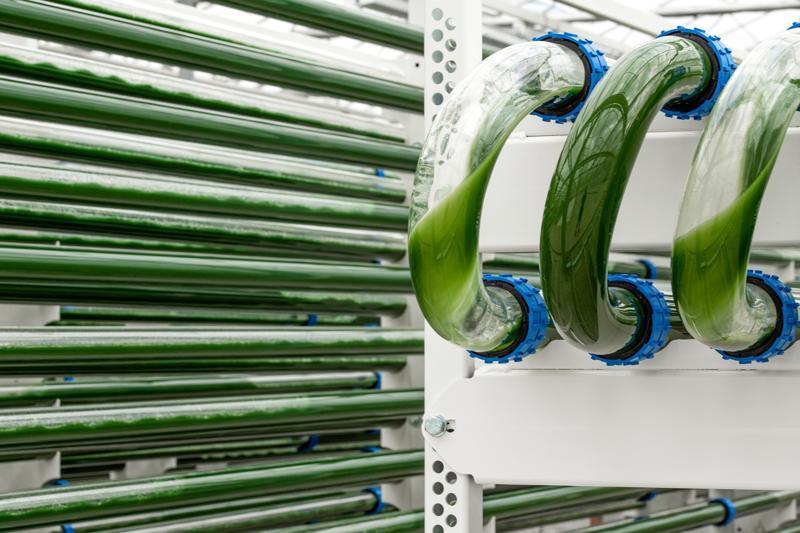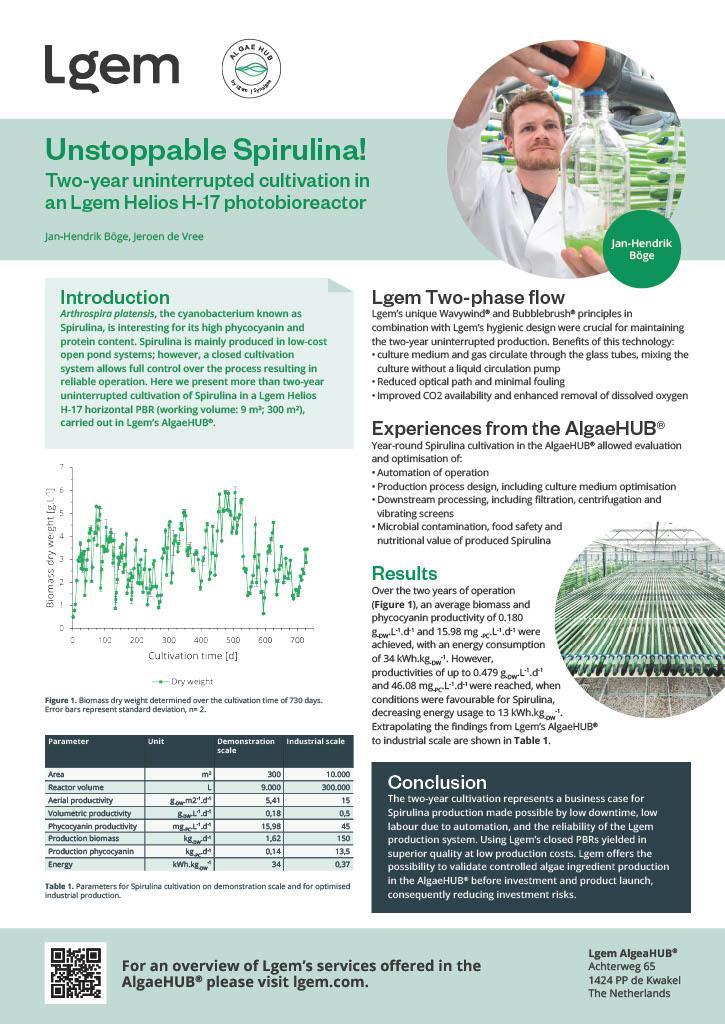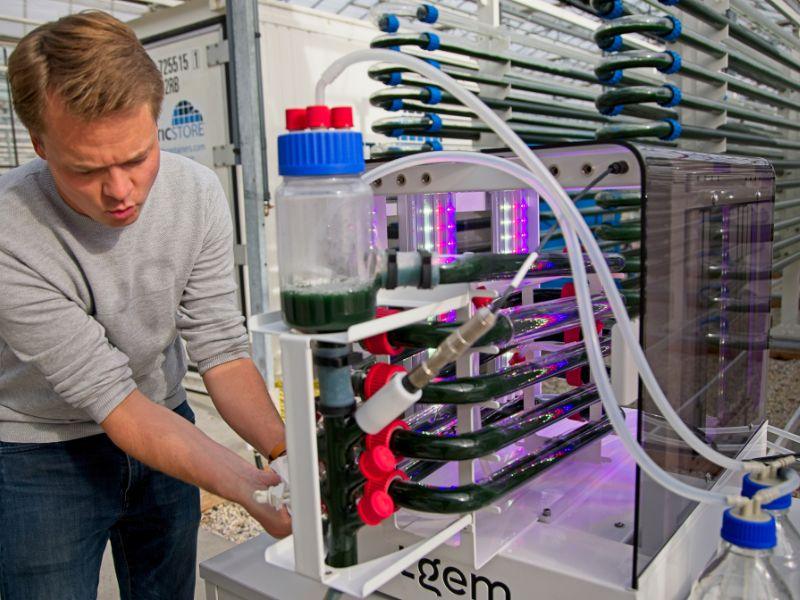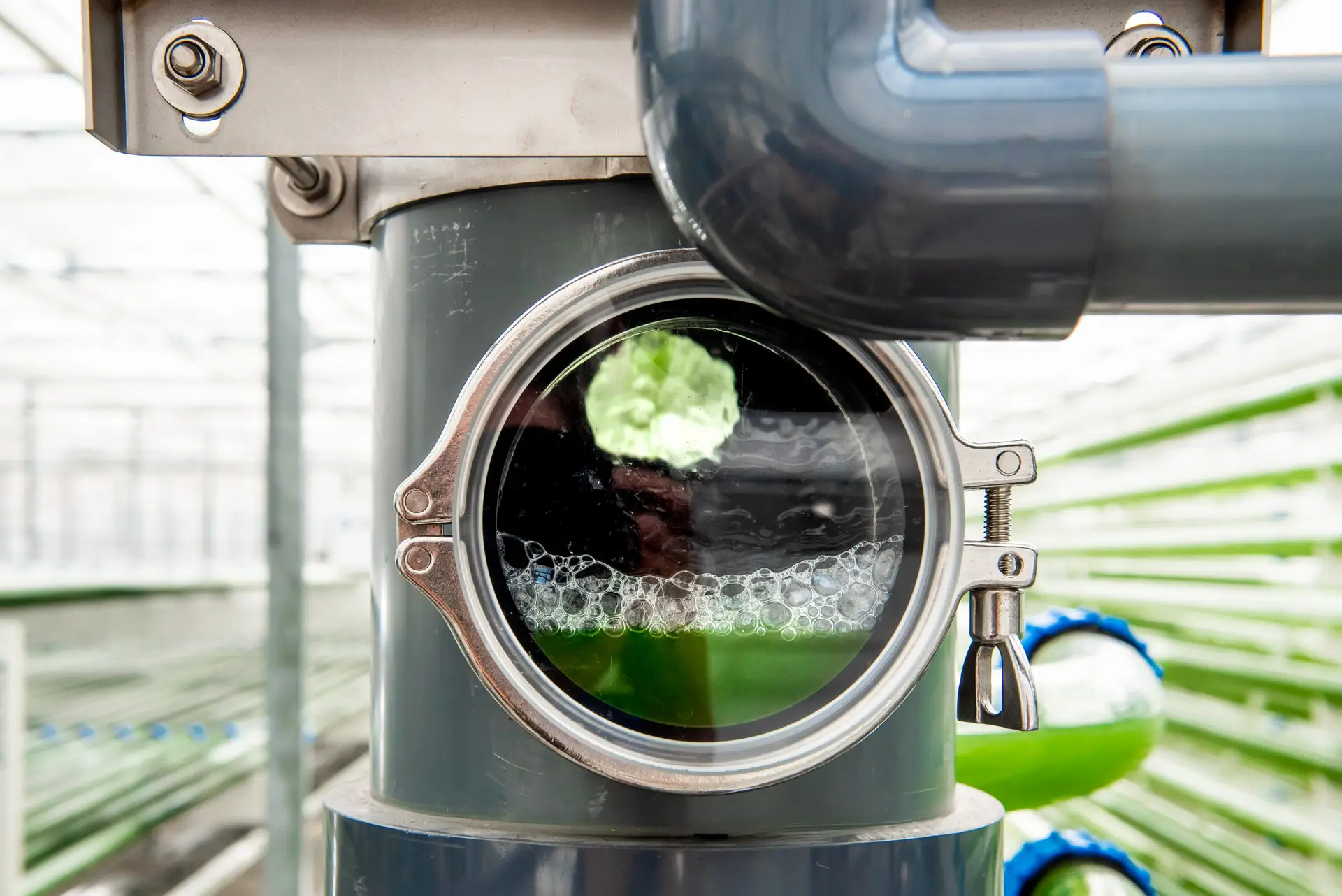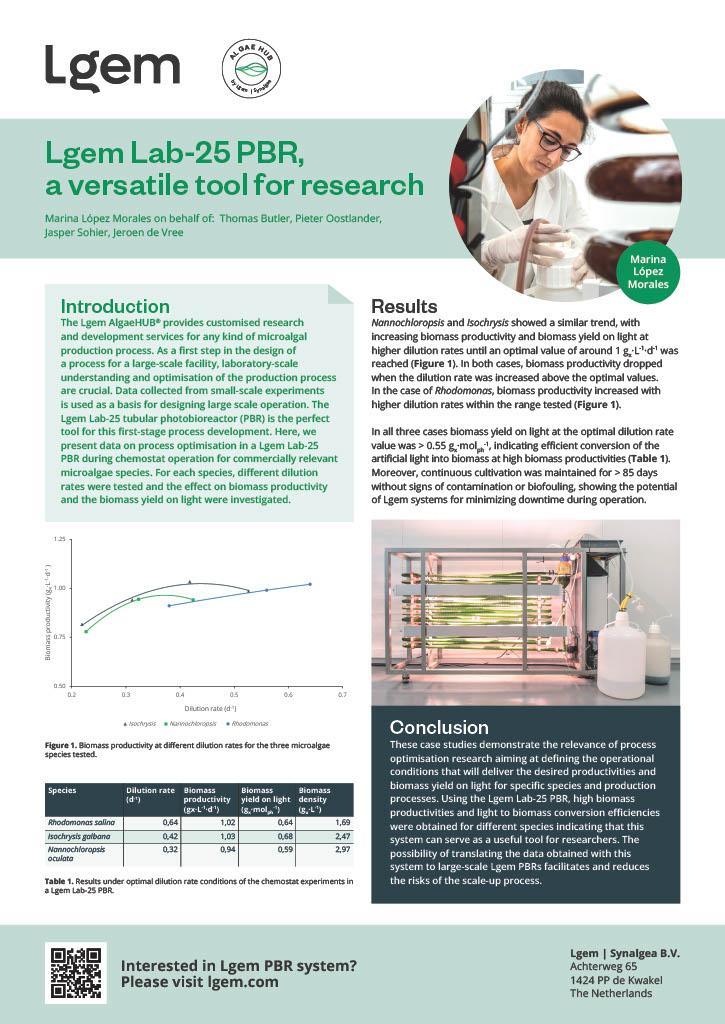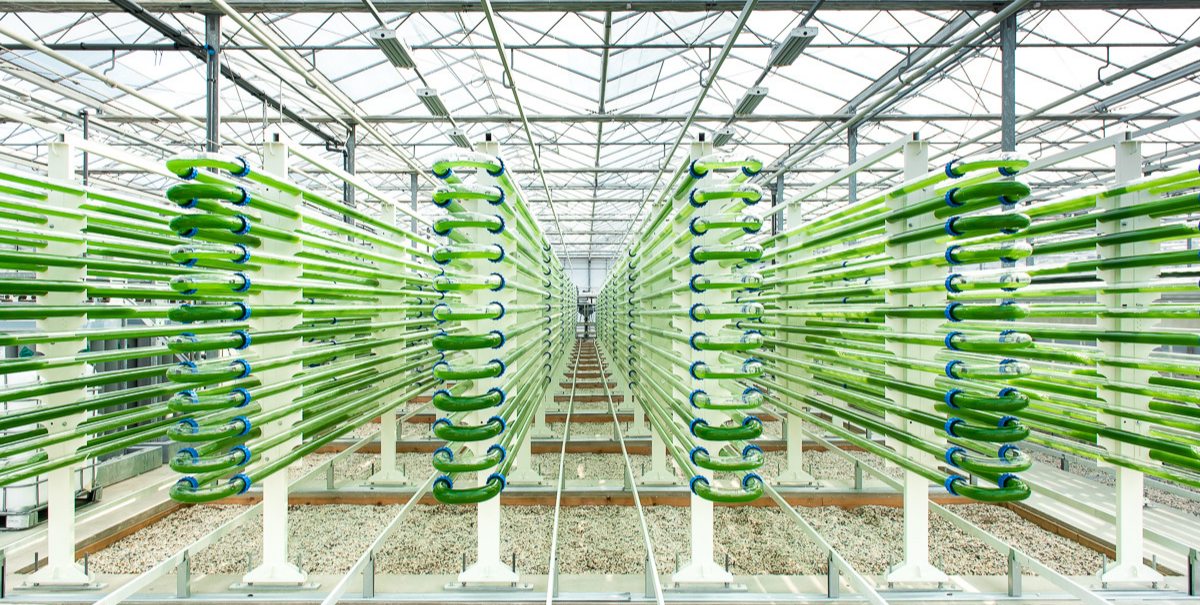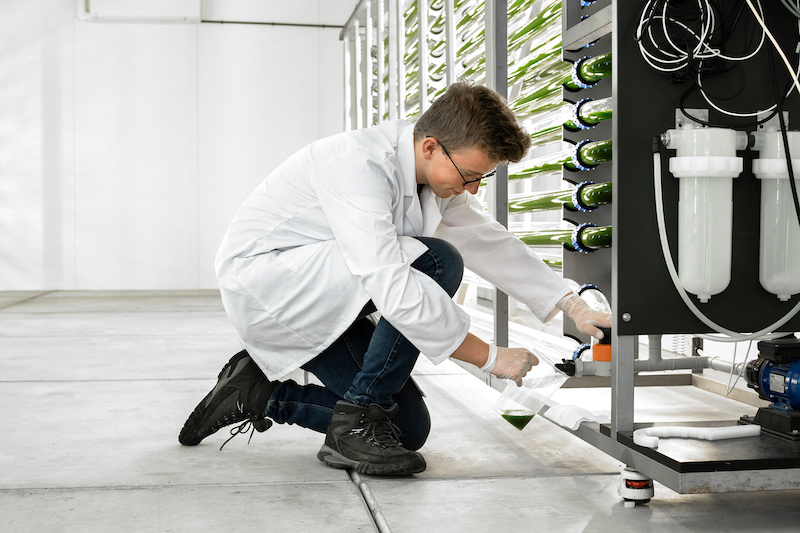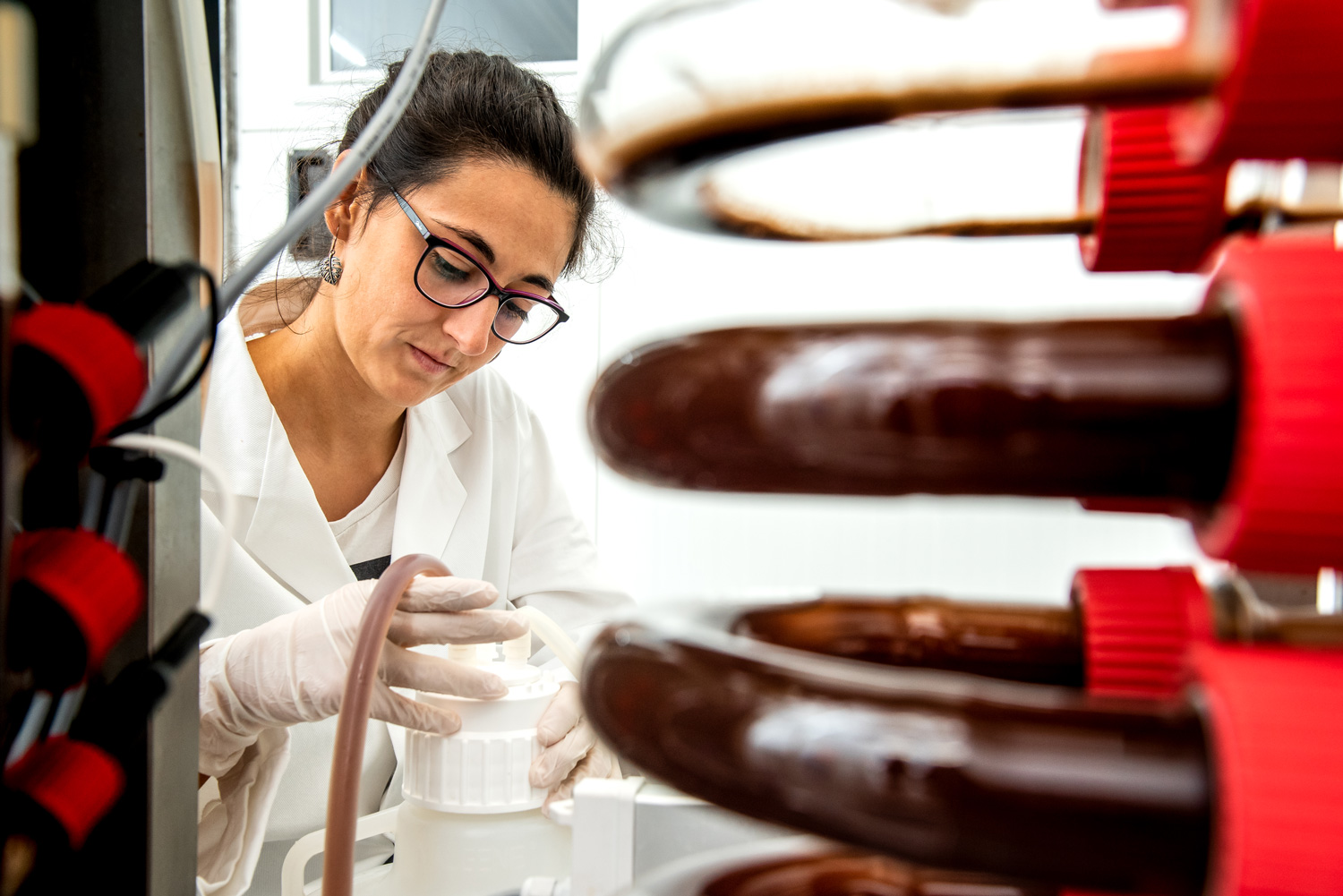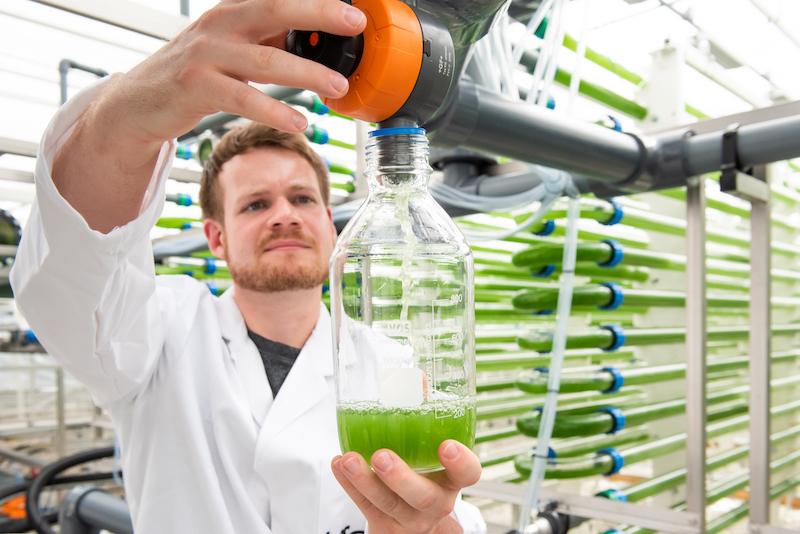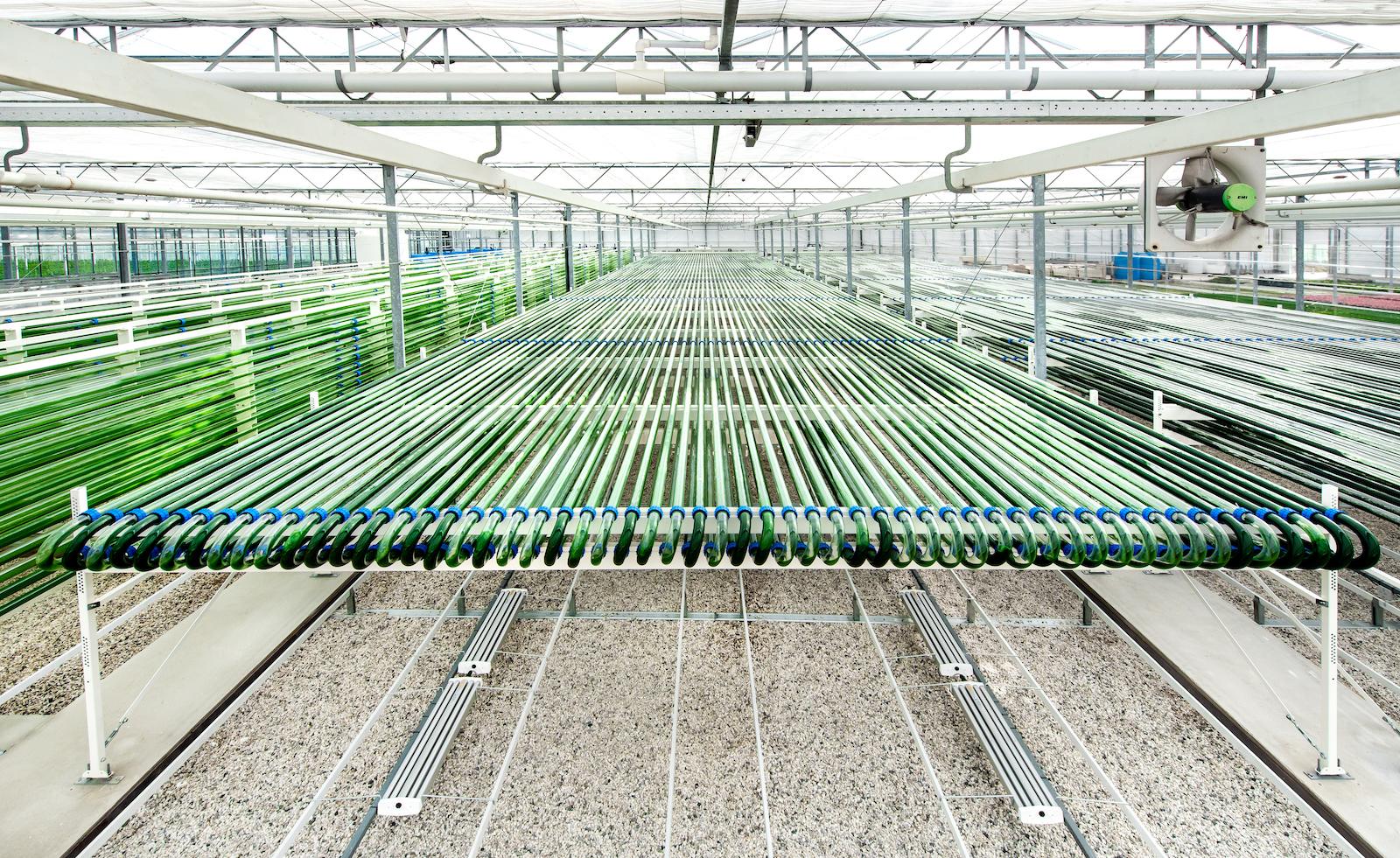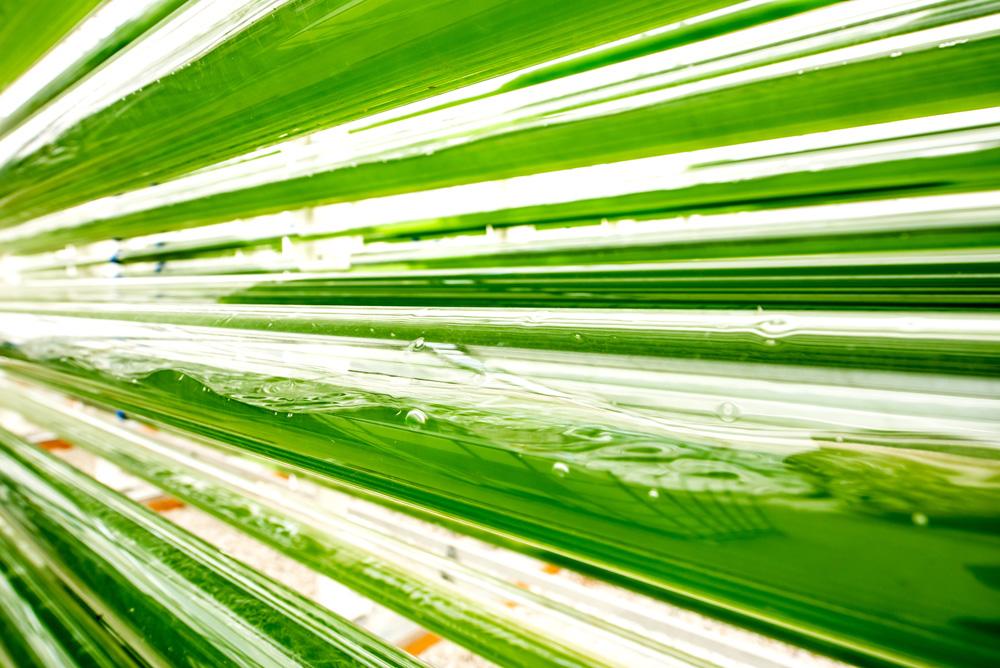
Algae Biotechnology for Sustainable Innovation.
We are excited to introduce Marta Batista de Sá as the new lead of the AlgaeHUB®. Marta has a wealth of experience in the algae industry, and in this interview, she shares her journey, her role at AlgaeHUB®, and the challenges and opportunities within the sector. She also offers her vision for the future of algae biotechnology and how AlgaeHUB® is uniquely positioned to bridge the gap between scientific research and industrial applications.
From passion to leadership at AlgaeHUB®
Marta Batista de Sá is no stranger to algae. She has gained years of experience during her PhD, where she focused on monitoring tools for algae cultivation and production. Reflecting on her journey, Marta explains
Marta: Algae have always been a passion of mine. I stepped away from the industry for a while, but once you’re an ‘algaeneer’, you remain one. The vibrant community and the potential of these microorganisms drew me back.”
After her PhD, Marta worked in various fields, but her passion for algae ultimately led her to return to the sector. She now leads the AlgaeHUB®, where she manages her team and engages with clients, optimises their production processes, and collaborates on research projects.
“We help clients with research and production questions, focusing on algae production optimization and optimising their processes in our facility. We’re also highly involved in research projects to keep improving algae research and share our findings with the community,” she explains.The most crucial factor for algae cultivation at an industrial level is the ability to control light. It is important to ensure consistency in the reactions of algae to light across different scales,” she explains.
Lgem deployed a significant number of its researchers and reactor capacity to quickly achieve results. Pieter: “At times we had four Lab-25 photobioreactors running simultaneously during the research phase, each on a different set of conditions so we could quickly compare the results and reach an optimum. The joined research team achieved substantial improvement in cultivation productivity gains, and successfully demonstrated continuous culture and harvesting over extended periods.”
A global perspective
Marta’s career has taken her across borders. Originally from Portugal, she moved to the Netherlands for an internship at Wageningen University.
“I came to the Netherlands for six months and never left,” she laughs. “The industry and the country drew me in, and I’ve been here ever since.”
Wageningen University, known for its AlgaePARC facility, played a role in her career development. However, Marta highlights the differences between the two institutions:
“AlgaePARC plays an important role in the initial steps of developing microalgae cultivation protocols up to a certain scale, and we collaborate closely together several times. At the AlgaeHUB, we take the research and algae production to a higher production scale.”
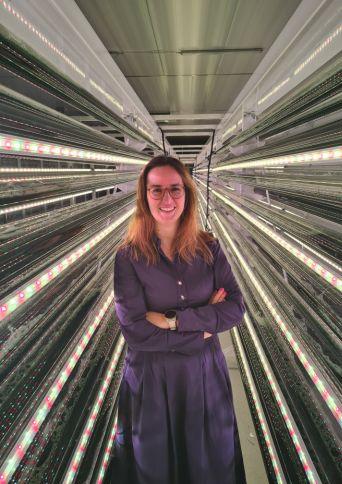
AlgaeHUB®’s unique role in the industry
When asked what makes AlgaeHUB® special, Marta points to the close connection between research and industry:
“Our team has a strong scientific background, which allows us to understand the microorganisms and provide valuable insights to clients. We help the industry grow by bridging the gap between research and industrial applications,” she says.
AlgaeHUB® stands out for its ability to connect with research institutes and industrial partners. It offers systems ranging from five-litre research setups to large-scale cubic meter systems. This versatility puts the organisation uniquely positioned to advance the algae industry.
Stimulating innovation
As a new leader at AlgaeHUB®, Marta is determined to drive innovation within the algae sector. She acknowledges that the industry still lags behind other single-cell industries but believes there is great potential:
“There’s a lot of research, and recently, there has been a growing investment interest. In the search for novel proteins and environmental solutions, I believe AlgaeHUB® can play a crucial role in proving the potential of algae.”
She is particularly passionate about translating scientific breakthroughs into practical applications, which she believes is critical to advancing the industry.
Overcoming challenges in the algae sector
The algae sector faces numerous challenges when thinking about upscaling and industrialising biomass and its products, many of which AlgaeHUB® is helping to address.
“At an industrial level, everything is magnified, including the challenges. We help identify and mitigate these risks, optimising production processes and ensuring that clients achieve the best yields possible,” Marta explains.
Collaborating with research institutes and industry partners gives AlgaeHUB® an edge in tackling these challenges. From optimising nutrient sources to exploring novel products, AlgaeHUB® is at the forefront of innovation in the field.
A vision for the future on algae biotechnology
Marta has a clear vision for the future of algae biotechnology:
“I would like to see algae biotechnology become a leading field within biotechnology in the next five to ten years. We have the potential to address societal challenges such as climate change and food security,” she asserts.
Building an ecosystem
Looking ahead, Marta hopes to expand the network of companies AlgaeHUB® collaborates with, creating an ecosystem that drives growth within the industry.
“We want to be the go-to people for industries seeking to leverage the potential of algae,” she says.
Final thoughts
When asked what message she would like to share with those curious about AlgaeHUB®, Marta takes a moment to reflect.
“I want people to know algae is more than just a research topic. It can potentially address some of the most pressing environmental and societal issues we face today. And at the AlgaeHUB®, we’re working daily to unlock that potential.”
With her passion for algae and drive to push the industry forward, would you like to contact the team of the AlgaeHub® and discuss what Lgem can do for you?
